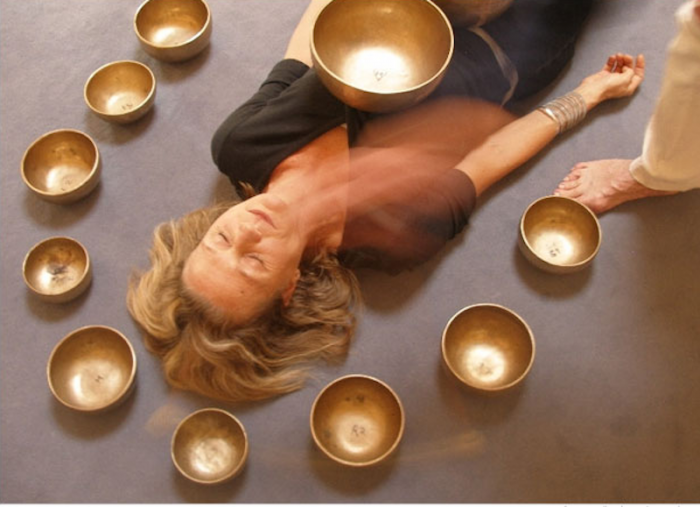Money is often viewed as a sensitive topic.
It doesn’t matter which era or culture you live in, money is one of those things that moved mountains and shaped valleys. It has strengthened lives yet also destroyed societies.
Some may argue that money is so intimate to us, more so than sex. Yet we are never taught about the meaning of money and financial literacy in schools, even as science and technology advance.
In most cultures, the head of the household (HoH) is often the one who brings home the bulk of the money to run it. In the United States alone, the HoH is considered the taxpayer who contributes half of the support and housing cost of another. And to the one who brings home the most bacon, he or she is also bestowed that power or authority to influence the way how the dynamics of a household is operated.
Growing up in a matriarchal household, I had my fair share of experience in observing how money caused both tensions and harmony between couples, siblings, and extended family members. And since, as they say, we are the product of the generations before us, I supposed that affected me, in ways both seen and unseen.
For many years, I’ve had a love-hate relationship with money. I never quite comprehend fully how to position myself with this culture of chasing paper notes. This has impacted my self-worth and self-esteem. It has shaped how I earn and spend. It has also influenced how I think a man and a woman should interact when it comes to money. And I guessed this has also caused some spillover effects on my mental and emotional health.
Recently, I had a flare-up of pain in my lower back, hip, and sacrum. This episode led me to explore deeper into alternative healing. After reluctantly signing up for two months of chiropractic sessions with no results in sight, I decided to tap into my inner intuition and signed up for a couple of Tibetan Bowl sound therapy sessions with an intuitive healer.
As my journey into sound healing sessions began, the healer revealed to me that I may have to start to reflect deeper in my perception of money and self-worth, and with my intimate relationship with my natural site of creativity: my womb.
She felt, intuitively, that this self-exploration could help with my pain issues alongside the ongoing chiropractic sessions. And so, I did.
As I embarked on this reflection journey, I have rediscovered new ways of how I can rewrite my powerful stories to heal my relationship with money and my lower back.
Way 1: “Ignite your inner masculinity.”
Traditionally, masculine energy is associated with taking actions, materializing dreams, setting plans and goals, and achieving results. It is no wonder that the world we lived in seemed to focus on these masculine “qualities” as benchmarks of success.
From hiring practices to finding potential other-halves, to success determinants of start-ups, we are often asked what can you bring to the table, what have you achieved in your last role, how much profit or market share a start-up has? But we seldom asked what kind of intangible support can you contribute, such as mental and emotional support.
In other words, we asked what we can see, not what we can feel, where feelings are usually associated with feminine energy.
So, to ignite your inner masculinity, ponder on these questions:
>> How connected are you with your own dreams? Are you in sync with your daily routine of tasks and commitments?
>> Do you feel your daily life is bringing you one step closer to your dreams and desires?
>> When you are “working” and “taking actions,” do you feel aligned or feel something is amiss? Perhaps causing you frustration, unpleasant stress, and even uneasy sleep?
What I’m doing about it (and how you can too):
Since growing up in a matriarchal household, this wasn’t too difficult for me to tap into. However, I have learned to understand just because a woman makes more money than a man in a household, it doesn’t mean that they held higher power.
Instead of self-sabotaging with not wanting to earn more, or completely dominating a relationship by holding full earning power, I established a respectable relationship with money, by always asking myself, “Do I feel aligned with myself when I earn or spend? Do I feel genuinely happy when I do so?”
In fact, sometimes I will say to myself that what I am spending, I am contributing to someone’s job or a company’s mission. It feels good knowing that I can do that, even with $100.
Yes, I am aware that not many can feel altruistic, but that’s another topic for debate.
Way 2: “Know thy womb, heal thy womb, embrace thy womb.”
The womb is a unique organ, exclusively to the biological female only. Spiritually, the womb is also where the sacral chakra resides, often associated with creativity. It is also the portal of reception, conception, and birth.
Birth is not just the 40-week of gestation but that before and after. Why? Because there must first be birth between two lovers, the actual union of sexual gametes, the pregnancy, followed by the labor of love and the upbringing of an infant to an adult and beyond.
When a man and a woman make love, the womb (specifically the fallopian tube) is where sperms get deposited, and that “war” began.
Out of a million sperms, only one “victorious” sperm “wins,” breaking through the membrane of that one egg that is released from the ovary, swims its way to the nucleus, and unites, that is if the timing of the above events happened at all.
Before intimacy can happen, there need to be elements of understanding and trust present. Likewise, to get intimate with our womb, we need to understand it.
In the case of the feminine relationship with money, reflect upon these questions:
>> How much do you really know about the role of the womb?
>> What traditional folklores and related stories were being passed down from your mother, main caregiver, or the female members of your family?
>> What was explained to you when you have your first menstruation? Were there “rituals” and celebrations? What kind of conversations were held?
>> Honestly, how do you find your womb? Is it annoying or beautiful? Do you speak to it, massage it, embrace the monthly cycle?
What I’m doing about it (and how you can too):
I used to grow up hating having menstruation. I deemed myself as dirty and annoying when it came. I found it a nuisance, and so I attempted to manipulate my cycle by cutting carbohydrates and losing significant body fat. I secretly rejoiced when I missed my cycles, the longest for up to two years.
Later, as I got to know more about our hormonal system and its implications on our health, I learned that I may be suffering from amenorrhea, and it’s not exactly a healthy sign. Over the last few years and especially so the last nine months, I talked to my womb and embraced it wholly.
I gently love the unique organ, and even if menstruation came, I see it as a beautiful and natural process of purging. After all, scientifically speaking, menstruation is the result of an unfertilized egg and the breakdown of the thickened blood tissue of the uterus. Also, there is a limited lifetime for menstruation. And it will stop when menopause hits, whether I like it or not.
Way 3: “Ditch your past and rewrite your money story.”
Since we are the by-product of our parents and those before them, needless to say, it’s important to take a hard look at the stories of the upbringing of our ancestors.
Find out the money experiences of your parents, paternal and maternal grandparents, great grandparents, aunts, uncles, and cousins.
>> Notice if there were frequent fights, quarrels, and misunderstandings around them? Or was it generally harmonious and respectable?
>> Were there scenes of power plays; for example, is the one with the most money tend to be looked up to or cut away from the rest?
>> Were there, also, unequal partnership, with regards to money matters such as women not having any say whatsoever in money matters; or on the other spectrum, where all household income is under the full authority of women?
>> Were women told to keep their own secret stash? What did your mother or father tell you about money? Are money conversations openly discussed?
What I’m doing about it (and how you can too):
There were feuds over money, that I did not forget, often resulting in sour ties or worst, irreconcilable differences. My grandmother taught my mother, who in turn taught me that it’s important for a woman to have her own secret stash of money, as she liked to call it “私房钱”(si-fang-qian), as a way of security, to never be dependent on husbands, should they run or hurt me.
That really spurred my focus on all things money-making and possibly warped my internal self-worth, thinking that if I did not make a certain amount of income, it means that I should never be in a relationship.
Moving forward now, I am gradually rewriting my own personal story about money. I learned that my self-worth is not determined by how much I make, that having my own personal stash of money is for future financial comfort or medical emergency, and not because my future husband will hurt me.
Most of all, I learned from the experiences of those before me that when it involves parties, it is important to openly communicate expectations and boundaries and to reaffirm that how much one makes or contributes does not change the ties between each other.
Parting Thoughts
They say money is the root of all evil. Though we have read and heard of many stories that revolve around money, the truth of the matter is, if we really quiet our minds and open our hearts, we soon realize that, like any technology or a simple pen, money is just a tool.
What matters is how we use the tool. What distinguishes is the intent of using money.
Put money in the hands of a fool, it is squandered in matters of minutes; put money in the hands of the evil, it is used to fund dangerous or treacherous activities; put money in the hands of the wise and noble, it is used to build legacies to change lives, like in the case of Charles Francies Feeney, a retail magnate who has given $6.3 billion in lifetime donations with a net worth of down to $1.5 million, according to Business Insider 2015.
I am glad that I am now in a healthier relationship with money because I have gained a renewed sense of self-worth and confidence. I love the freedom of what this wisdom brings, as I can choose to either live within means or spend more to drive the economy or to help someone keep their job.
All we need is not to be slaves to money, but to be more mindful of how we spend, not contributing to the negative impacts of industries such as fast fashion.
~


 Share on bsky
Share on bsky





Read 2 comments and reply